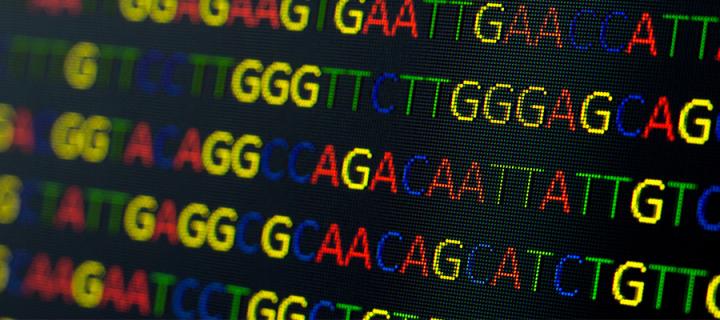Transcriptomic profiling may identify patients with breast cancer who can safely omit radiation therapy after breast-conserving surgery
Patients with invasive breast cancer that had low scores on an investigational gene molecular signature had similar rates of local recurrence whether or not they received adjuvant radiation therapy after breast-conserving surgery: December 2022

Patients with breast cancer who undergo breast-conserving surgery are currently recommended to receive adjuvant radiation therapy to reduce the risk of local recurrence. However, many patients will not experience a local recurrence even without radiation therapy.
According to the results of a meta-analysis presented at the San Antonio Breast Cancer Symposium, 6-10 December 2022, a new molecular profiling approach may allow clinicians to provide patients with information relating to whether radiation therapy will be beneficial for them or not. The international study - involving pivotal collaborations from researchers from the Biomarker and Companion Diagnostics Group (Dr Karen Taylor) in collaboration with Professors David Cameron, Ian Kunkler and John Bartlett at Edinburgh Cancer Research - is led by Per Karlsson, MD, professor of oncology at the Sahlgrenska Comprehensive Cancer Center and the University of Gothenburg in Sweden.
The research team evaluated the predictive potential of POLAR (Profile for the Omission of Local Adjuvant Radiotherapy), an investigational 16-gene molecular signature that was developed based on gene expression differences between patients with and without local recurrence after breast-conserving surgery. Genes included in the signature have known roles in cellular proliferation and the immune response.
The researchers performed a meta-analysis of 623 patients with lymph node-negative, estrogen receptor-positive, HER2-negative breast cancer who were enrolled in one of three randomized clinical trials examining the efficacy of breast-conserving surgery with and without local breast radiation therapy.
The clinical trials included in the meta-analysis were the Scottish Conservation Trial (SCT) led from Edinburgh University, the Swedish SweBCG91RT trial and a trial from the Princess Margaret Hospital (PMH) in Canada. Among the 623 patients in the meta-analysis 137 were from SCT, 354 were from SweBCG91RTand 132 from the PMH trial.
To evaluate the predictive capability of POLAR, the researchers analyzed gene expression in patient breast tumor samples to assign each patient a POLAR score; they then examined the impact of radiation therapy for patients with high and low POLAR scores.
Among the 479 patients with high POLAR scores, those who did not receive adjuvant radiation therapy after breast-conserving surgery had a 63 percent greater risk of local recurrence compared with those who did receive adjuvant radiation therapy, suggesting that adjuvant radiation therapy was beneficial for these patients.
In contrast, for the 194 patients with low POLAR scores, there was no significant difference in local recurrence rate between those who received adjuvant radiation therapy and those who did not. After 10 years, five percent of patients who received radiation therapy experienced a local recurrence, compared with seven percent of those who did not receive radiation therapy.
“In a patient-level meta-analysis of three independent randomized clinical trials, the POLAR gene profile successfully predicted which patients would and would not benefit from local radiation therapy, thereby identifying a group of breast cancer patients where radiation therapy may be safely omitted after breast-conserving surgery,” summarized Karlsson.
“Although only a minority of patients experience severe side effects to breast radiation, this adds up to a fair number of patients once you consider how prevalent breast cancer is,” he added. “The POLAR gene profile may, therefore, help mitigate toxicities and improve quality of life for many patients.” Karlsson noted that the POLAR gene profile will need further validation and additional streamlining before it could be used in the clinic.
Dr Taylor, the lead scientist from Edinburgh, said “We were privileged to play a pivotal role in ensuring that this new study could be completed and have a potentially significant impact on future cancer patient care”.
Future research will examine whether the POLAR gene profile can also identify patients who could safely avoid regional radiation therapy, which is associated with more severe toxicities than local radiation therapy.
The study was supported by funds from the Edinburgh and Lothians Health Foundation, Swedish Cancer Society; the Swedish Research Council; the King Gustaf V Jubilee Clinic Foundation; the ALF Agreement of the Swedish government; the Breast Cancer Institute NHS Endowment Fund; Western General Hospital; Edinburgh; PFS Genomics and Exact Sciences.
Related links
Related stories
- Longest follow-up of patients with early breast cancer shows radiotherapy does not improve survival after 30 years
- Therapy trial offers breast cancer patients hope
- Drivers of endocrine therapy resistance in estrogen receptor positive breast cancer
- Disparities in breast cancer care quality have reduced
- Clearer guidance issued on cancer care to help patients

